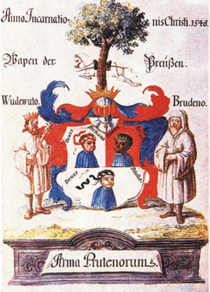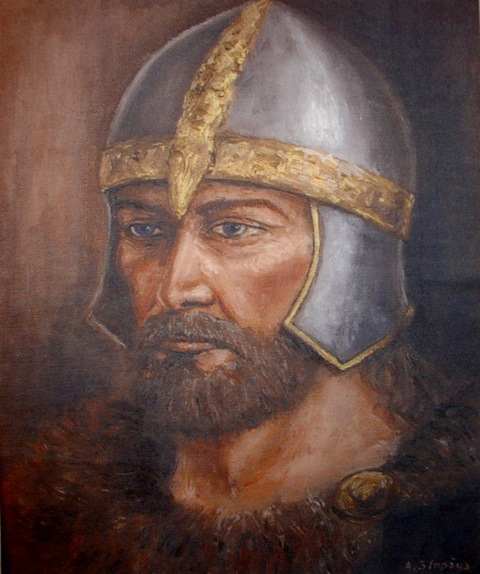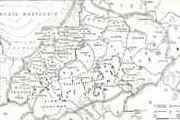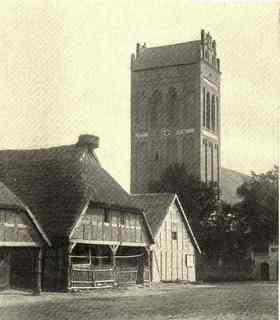MAIL: PRUS@PRUSOWIE.PL
Counter
Counter


Membership
KALININGRAD REGION
THE KALININGRAD REFERENDUM
UN - UNITED NATIONS
United Nations Charter THE PRUSAI PEOPLE DECLARATION
THE PRUSAI AMBASSADORS
Australia GERMANY
ACTIVTIES
The Prus Club Bulletin 1 Bulletin 2 Bulletin 3 Bulletin 4 Bulletin 5 THE PRUS FORUM
ARCHIVES
Appeal EU - Correspondency Appeal to the EU Parliament
Prussenarbeitsgemeinschaft
B U L L E T I N 5
Declaration – Complaint
by Manfred G. Kaireit (Kairáitis)
Definition of terms: “Prusa” is the name of the area where the ancient natives – the Prusai – have been living for centuries. Later it was known as “Ostpreußen”, a province of the Brandenbourg-Prussians and today as the “Oblast Kaliningrad”, an area which is still under Russian administration. “Prusai” are the natives of the land Prusa, their descendants and sympathizers of the concern of the Prusai. “Neo-Prussians” are the German and European settlers and their ancestors who immigrated to Prusa during the Middle Ages after the conquest by the Teutonic Order. “Twangste” is the ancient Prusai name of a city in Prusa, which was well known as “Königsberg” and named today “Kaliningrad”.
This declaration is a complaint which aims at the European Union and the parties of the 2-Plus-4-Agreement of 1990/1991 and the Russian Federation of to
day, who are answerable for the unfair and inadequate treatment of all refugees from Eastern Europe after 1945.
In 1944 and 1945 many native Prusai and Neo-Prussians, who are German and European settlers whose ancestors immigrated to Prusa during the Middle Ages after the conquest by the Teutonic Order, remained when the red army was approaching. Later they were deported by the soviets to Buchenwald, a former German concentration camp which had been operated by the Hitler regime and continued to be operated by the Stalinist east-German regime like a soviet-style labor camp. Another camp, Bautzen, continued to be operated until shortly before the reunification of Germany in 1990.
After 1990 the reunited Germany did everything to prevent the deported Prusai and the former Neo-Prussians from being rehabilitated, having their property returned or restoring at least their dignity in this respect. We, the Prusai, shall never forget that the confiscation of our land Prusa was part of bigger blueprint of Stalin and his successors to annex the entire Baltic region. The confiscation was based on a Marxist doctrine of seizing means which tried to eliminate the natives and their old Baltic culture: killing, arresting, deporting, expel of intellectuals and industrials, closing of small and medium sized businesses got rid of the entire work force and farm owners. There was no legal or moral reason for this kind of action. It grossly contradicts the international humanitarian law (Hague Convention on land warfare of 1907).
During the negotiations which led to the 2-Plus-4-Agreement there had been a window regarding the future of the Oblast-Kaliningrad. The government of the Federal Republic of Germany has maintained that the Soviet Union made it a precondition for the reunification of Germany to uphold the Soviet confiscations which did take place from 1945 till 1949. For that reason the confiscations achieved by the communist administrators – euphemistically called “land reform”- could not be touched, according to the former German chancellor Helmuth Kohl. Unfortunately Helmuth Kohl told quite the truth when he stated: “The government of the Soviet Union made the continuation of measures taken between 1945 and 1949 a precondition for the unification.” I firmly state that the unification of the two sections Federal Republic of Germany and German Democratic Republic could not be allowed to fail over this question. However, in the game of politics one has to read between the lines. Mr. Gorbatchev declared: “The issue of restitution of confiscated property was never discussed at highest levels. It is absurd to impute that I made this demand as a precondition for my approval of the reunification of the Federal Republic of Germany and the German Democratic Republic.” Russian officials insist today that the Kremlin only insisted upon the legality of a land reform but had no intentions of telling the new politicians what to do with the native land of Prusa. A democratic state based on the rule of law such as the Federal Republic of Germany is not bound by confiscations committed in breach of international law. The Prusai issue is a classical state-citizen-conflict even though the German Government likes to portray it as an east-west-conflict.
As a matter of fact we Prusai have always been sure that there never was any precondition for a unification of both parts of Germany. A government is not a private person who has acquired property in good faith. To act as if this was the case – like Germany did – grossly contradicts the constitutional responsibility of the government to safeguard private property rights. We Prusai believe that the constitutional European court has come under the suspicion that it was willing to accept the claim of the German government for reasons of political opportunism. The European court should know that the existence of minorities in Eastern Europe depend on an independent judiciary for the protection of their rights against abuses by any EU-member. If one follows the view of the UN-resolution No. 2625 he will see that it contains a catalogue of completely impermissible distinguishing criteria, and an absolute ban on discrimination.
The Prusai minorities in Europe know very well what the article six of the Potsdam Agreement tries to implement.
We Prusai natives know that the Allies placed the city of Twangste (today Kaliningrad) “and the area adjacent to it”
under the “administration of the Soviet Union” and speak of the “ultimate transfer” of this region to the Soviet Union.
Stalin made of it a unilateral annexation in 1946. We also know the fact that the parties of the 2-Plus-4-Agreement of 1990/1991 (Federal Republic of Germany,
German Democratic Republic, Union of Socialist Soviet Republics, United States of America, United Kingdom and France) failed to legally transfer the Twangste-region to the Soviet Union leaves the legal status of this area still unresolved. Despite its de facto control of the Oblast and since it never accepted the de jure title of that region, the Soviet Union does no longer exist and the future of that region is now open to question.
We Prusai ask: Who owns the land Prusa at the present legally?
While some European States who favor the status quo argue the Helsinki final act declares that the borders of Europe are inviolable others however point out that it does not state they are necessarily final. The natives of the land Prusa have neither been mentioned in the Potsdam Protocol nor were involved in any settlement. The ongoing process of political and economical devolution in Eastern Europe makes it prudent to examine alternative futures for the Kaliningrad Oblast: The construction of a truly fourth Baltic republic! The renaissance of the Baltic cultural area as a whole would give way to economical development, cultural revival and intensification of the conservation of the Baltic natural area.
However, the tin cane of the Pandora became open and even the Elpis (hope) remained. We Prusai have lost everything: our culture, our old religion, our old Prusai language and the right to return to our home-land Prusa. Even the hope of being granted a status as a national minority or as a dispersed minority was badly disappointed.
Today, inside the European Union there are more than one hundred ethnic minorities amounting to more than one hundred million members. The success of establishing a stable structure of peace in Europe will also depend on whether the question of minorities can be resolved satisfactorily in terms of international law at the courts in The Hague.
Europe’s diversity of peoples and cultures is one of the main reasons of its richness and vitality. Therefore the protection of minorities is of highest value.
- Native minorities shall have the right to be protected against any activity capable of threatening their existence.
- Native minorities shall have the right to respect, safeguard and development of their ethnical, religious and linguistic identity.
- Native minorities shall have the right to allocate legislative power to one or more organs on the governmental level or on similar levels.
Therefore the representation of Prusai interests shall be ensured by an organization which has the following organs:
1) Assembly
2) Steering Committee
3) Secretariat
The activities of our new Prusai organization shall include but not be limited to:
- The facilitation of consultation, exchange of views and experiences and cooperation with each other to the extent desired by the participants.
- Assistance in effectively utilizing available procedures of United Nations bodies and specialized agencies and of other regional and international organizations.
- Training in bilateral and multilateral diplomacy, including United Nations diplomacy and the principles of international law.
- Training in negotiation skills and professional assistance in conflict management and resolution.
- Training in non-violent strategies and professional assistance in the development of strategic plans and policies..
- Professional legal and public relations advice..
- Providing an information service for the dissemination of information provided by participants to the public and among their own people..
- Assistance in the development of democratic institutions and processes and in monitoring of elections and referenda..
- Assistance in the development and implementation of measures designed to protect the natural environment and the creation of sustainable development projects..
Conclusion
After 1990 the European Union and Germany violated its fiduciary duty to its minorities by converting to their own use assets belonging to confiscation.
It is not the first time in history that we native Prusai have been attacked in public by politicians when we were seeking legal recourse or advice.
The most severe threat native Prusai people are facing today comes from the consumer and the so called consensus culture. The host societies try to assimilate the uprooted natives through their gossip and rumor about democracy and justice, which do not exist for the Prusai and the Neo-Prussians.
The Prusai natives would like to see a Baltic Alliance shared by a fourth Baltic republic – Prusa.
 www.Prusowie.pl - polski
www.Prusowie.pl - polski



